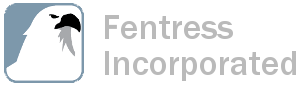Staying motivated and productive can be difficult when working remotely in a hybrid office setting. As organizations struggle to find the right balance between working from home and working from the office, employees are slipping between the cracks. This has led to the rise of ZEUS – zero effort unless supervised.
ZEUS workers are typically distracted by their home and social lives and find it difficult to concentrate on work. Some individuals struggle to maintain focus, self-discipline, and productivity when not under the watchful eye of a supervisor. This can be attributed to a lack of structure, increased distractions, or difficulty managing time effectively.
Having managed a remote workforce for 35 years, I see three key issues leading to success in working from home. First, you must have the right technology, including a stable Internet connection, a laptop, a phone, and other equipment needed to work from home. Second, have a dedicated workspace that is separated from the living area. Third, you need self-discipline to step into your workspace and shut out distractions to be productive at work.
It is this latter point that is the problem with ZEUS workers when working from home. Many are so distracted that focusing on work for eight hours a day is seemingly impossible. Some companies are responding by promoting a return to the office four or more days per week.
This casts a negative light on the hybrid work model. The hybrid workplace has advantages, but the employees need to be productive wherever they work, and managers need to address the challenges posed by ZEUS workers.
In the section below, I would like to address three aspects of ZEUS: the symptoms, the impact on an organization, and how to overcome ZEUS.
What are the symptoms of ZEUS workers?
Here are some symptoms that indicate whether you have a ZEUS worker in your hybrid office. A ZEUS worker is someone:
- Non-responsive to calls, emails, and instant messaging
- Missing deadlines
- Having poor work quality (unprepared and unfinished work)
- Being late to calls and videoconferencing meetings
- Not participating in or initiating conversations (“flying under the radar”)
- Uninformed on project changes and deadlines
- Unwilling to volunteer for assignments or to support others
- Having more background distractions when on calls or in videoconferencing meetings
These points can be best summed up as an employee not engaged with the work and coworkers. ZEUS workers are “checked out.” They end up being forgotten or purposefully overlooked regarding work assignments and teamwork.
What is the impact of ZEUS?
By not being engaged, ZEUS workers impact their coworkers and the organization. Here are some ways that ZEUS workers could affect your organization.
- Places more burden on coworkers to make up for the loss in productivity (others must pick up the slack)
- Drain on the morale of coworkers and the organization
- Resentment builds, impacting team dynamics and professional relationships
- Coworkers view management and the organization as being unfair if ZEUS workers are not reprimanded
- Trust suffers between employees and the organization when ZEUS workers are not held accountable and between managers and employees as tension in the organization increases
- Productivity suffers as tasks take longer to complete
- Could damage the image of the organization with clients or customers
- ZEUS workers isolate themselves because coworkers do not want to work with them
- Reduces the finances or profitability of organizations that pay the salary of someone who is not productive
The above points came from a company workshop on spotting ZEUS and understanding the impacts. These points were very insightful from our team of experienced remote workers. We have been a fully remote and high-performing virtual company for over 35 years and sometimes struggle with ZEUS. With many companies shifting to hybrid work post-pandemic, ZEUS has become a widespread concern.
Overcoming ZEUS
Remote employees who require constant supervision may exhibit a lack of self-motivation due to various reasons. One common factor is the absence of physical presence and immediate accountability in an office environment. Without direct supervision, some individuals may struggle to stay focused or prioritize tasks effectively. Additionally, the absence of social interactions and isolation in remote work settings can impact motivation levels.
The key to any strategy that addresses ZEUS is to promote accountability. Here are some ways to create accountability:
Set Expectations
Ensure that policy is clear on business hours, how many hours people should work per day/week, how often employees should be in the office, flextime, vacation/paid time off, and acceptable response times for various forms of communication.
Establish clear expectations and goals. When employees understand what is expected, they are more likely to stay focused and motivated. In doing so, set clear performance objectives and metrics.
My preferred approach is to develop Objectives and Key Results (OKR) at the organizational level that filter down to each employee. The OKRs are established for each quarter, and they are updated weekly. The status of OKRs is also reviewed at each company meeting.
I recommend using an online project management application to track tasks. We use Workast because it integrates with Slack, our communication hub. Project managers should break down larger goals into smaller, actionable tasks with specific deadlines. This structure will give ZEUS workers smaller steps toward completing larger goals.
Over Communicate
In a hybrid work setting, frequently communicating, in other words, over-communicating, is key to keeping employees engaged. Management should encourage communication by setting an example through how they share, collaborate, and seek clarification. Use instant messaging, videoconferencing, and project management systems for real-time interaction.
Hold regular team meetings, virtual brainstorming sessions, and provide dedicated channels for informal conversations (like a watercooler channel on Slack or a virtual happy hour). Over-communicating can create camaraderie and spontaneous interactions, which build a culture in hybrid offices between in-office and remote employees.
Ensure employees know your expectations regarding their work's quantity, quality, and timeliness. Managers should hold regular check ins or one-on-one meetings with employees to provide feedback and discuss ZEUS signs or concerns. Help coach employees to improve their performance and actively listen when employees express their concerns or challenges.
Establish a regular process for performance reviews. Hybrid office employees need more constructive feedback on their work. Use performance reviews to discuss strengths, areas for improvement, and offer recognition for achievements. This feedback loop helps employees stay on track, feel valued, and make necessary adjustments to their work.
Provide working sessions and training on remote working best practices that address productivity and communication. In addition to workshops on ZEUS, we have also conducted workshops on time management, communication skills, and the use of technology.
In a hybrid setting, it is important to create a culture where employees feel supported, valued, and recognized for their contributions. Encourage team members to collaborate to foster a sense of camaraderie and shared success.
One of the ways we do this is by providing each other with “high-fives” at the close of work on Friday. A high-five provides positive recognition to someone who has helped you during the work week. These are short statements published in a public channel on Slack so that everyone can see them. This not only boosts morale and builds connectivity, but it is also a good way to end the week positively.
In the end, you may have to terminate the employment of a ZEUS worker. In my experience, it is better to let someone go than to have the organization suffer from all the negative impacts described above.
Working remotely is not for everyone. Before the pandemic, many employees had to “prove themselves” before being given the autonomy to work remotely. The pandemic bypassed the proof and forced organizations to grant autonomy.
Many organizations are now paying the price by learning the challenges of hybrid and remote worker management. Dealing with ZEUS workers is part of that price.
What Not to Do
I have seen this scenario happen several times, and it is a lesson on what not to do with ZEUS workers. Managers avoid talking to ZEUS workers and leave dealing with ZEUS employees to coworkers.
When management avoids the issue, it only worsens the impact – magnifying the negative aspects of team dynamics and productivity problems. You may lose productive employees because they are tired of working overtime to make up for ZEUS workers, or they judge management to be unfair. Act on behalf of your organization and let ZEUS workers know there is a problem. Help them with training, mentoring, and regular communication, but do not neglect the situation.
Delegating the coordination of a ZEUS worker to a coworker is equally harmful. This is especially true if that person is not a manager or a project manager. Suddenly, they are responsible for talking to an employee about his/her work. This is unfair and harmful to organizational culture.
On a work team, it is common for employees to push away a ZEUS worker. If the worker is not going to be productive, then the team will likely isolate the individual because he/she is not contributing. This also magnifies the problem by making the ZEUS worker more isolated and less productive while building resentment in coworkers.
Neglecting can also place a stigma on remote workers. A hybrid office offers the opportunity for employees to have a better work-life balance. In turn, this can create happier and more motivated employees.
Do not let a few bad apples ruin the basket for everyone. Coach, train, or let them go, but do not neglect them. The actions of ZEUS workers harm culture and connectivity, two key elements of a successful hybrid office.
________________________________________________________________________________



.jpg)


.jpg)
.jpg)
.jpg)
.jpg)
.jpg)
.jpg)


.jpg)
.jpg)
.jpg)
.jpg)
.jpg)
.jpg)
-1.jpg)
.jpg)

